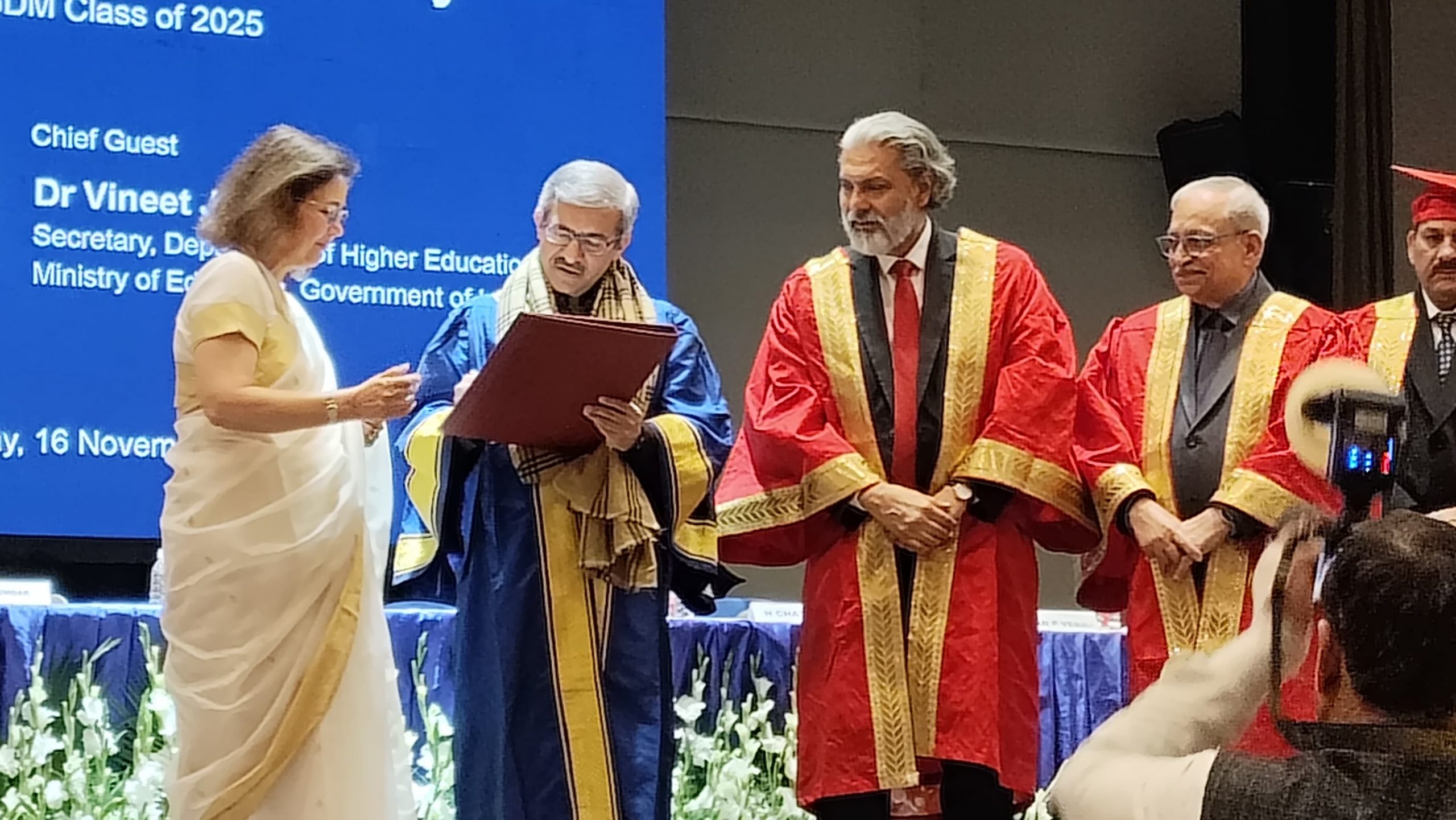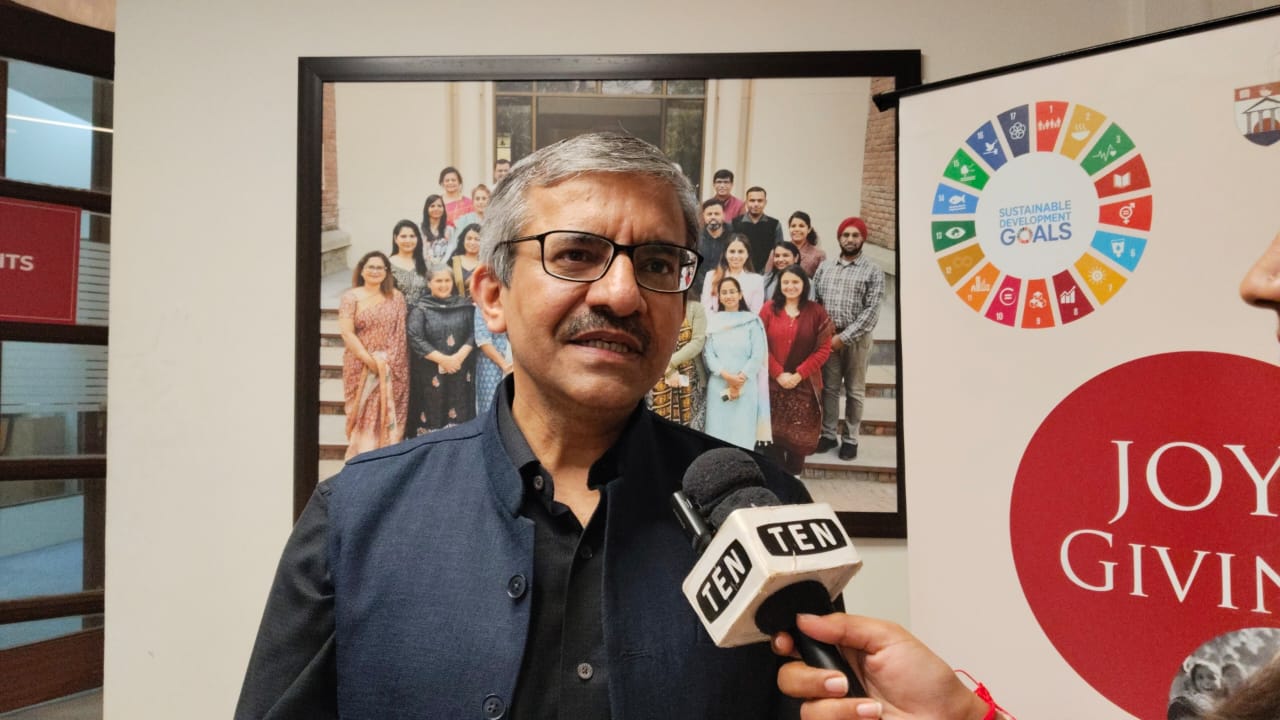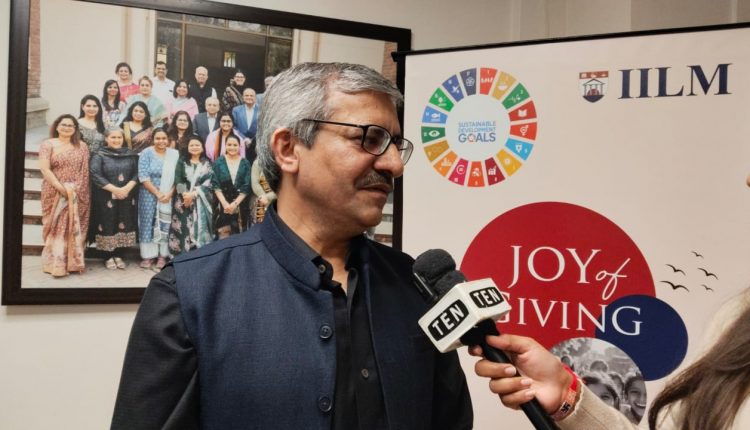NEP Driving Industry-Linked Learning, Research Innovation, and Global Expansion: UGC Chairman Dr. Vineet Joshi
TEN NEWS NETWORK
GREATER NOIDA News (16/11/2025): Dr. Vineet Joshi, Chairman of the University Grants Commission (UGC) and Secretary, Department of Higher Education, Government of India—widely known as the “walking encyclopedia” of the Indian education landscape—shared key insights on the ongoing transformation of higher education under the National Education Policy (NEP) 2020 during an exclusive interaction with Ten News.
Secretary, Department of Higher Education, Government of India—widely known as the “walking encyclopedia” of the Indian education landscape—shared key insights on the ongoing transformation of higher education under the National Education Policy (NEP) 2020 during an exclusive interaction with Ten News.
While talking to Ten News Network Dr. Joshi highlighted that the NEP’s implementation has been progressing steadily since its launch in 2020, bringing a paradigm shift in the way higher education engages with industry, research, global institutions, and students from diverse backgrounds.
Industry-Embedded Learning for Real-World Skills
One of the most significant reforms, Dr. Joshi explained, is the strengthened connection between academic learning and the industrial world. Higher education institutions across the country have introduced new programmes designed to enhance workplace readiness.

A major initiative under this reform is the Apprenticeship-Embedded Degree Programme, which allows students to spend two full semesters working with industry partners. This gives students hands-on exposure to real-world environments and helps them understand the practical application of what they learn in classrooms, Dr. Vineet Joshi said. According to him, this shift is reshaping students’ mindset from being job seekers to becoming job creators.
Entrepreneurship and Research for National Priorities
Dr. Vineet Joshi emphasised that the NEP encourages innovation, research, and entrepreneurship. Several universities have set up new research centres where industry and academia collaborate to develop technologies, processes, and products relevant to India’s needs.
He stressed that research must go beyond academic publications. Research should not remain a piece of paper. It must translate into tangible solutions that can be used by society, he noted. The government is currently working with institutions to promote translational research, especially in national priority areas such as environmental sustainability, innovation, and economic growth.
Expanding Access: Targeting 50% GER by 2035
A core objective of NEP 2020 is to expand the Gross Enrolment Ratio (GER) in higher education to 50% by 2035. Dr. Joshi pointed out that achieving this requires bringing more students—especially from disadvantaged groups—into the higher education system. He said increasing female participation, particularly in STEM fields, remains a major focus area. We need to ensure that students from weaker sections and more women have access to high-quality education, he added.
Strengthening Teacher Quality and Academic Leadership
Dr. Joshi further explained that teacher quality is central to the success of NEP reforms. What we teach in the classroom depends heavily on the quality of teachers, he said, adding that large-scale training programmes, capacity-building initiatives, and leadership development for principals and vice-chancellors are being rolled out nationwide.
India’s Push to Become a Global Education Hub
Speaking on India’s international education strategy, Dr. Joshi said the Ministry of Education is working on a two-way model—bringing foreign universities to India and helping Indian institutions expand globally.
Under the new UGC (Foreign Higher Educational Institutions) Regulations, 13 foreign universities have already received permission to set up campuses in India, with many scheduled to begin operations from the next academic year.
Simultaneously, premier Indian institutions are establishing their presence abroad.
IIT Madras has opened a campus in Zanzibar, IIT Delhi in Dubai, IIT Ahmedabad is expanding in the UAE, and several Indian private universities are exploring similar opportunities across the Middle East. The government is also encouraging international students to study in India. The goal, Dr. Joshi revealed, is to increase the number of foreign students to 500,000 in the coming years. To streamline this effort, the Ministry has launched the ‘Study in India’ one-stop portal, offering information on courses, institutions, scholarships, and simplified visa procedures.
A Future-Focused Roadmap
Dr. Vineet Joshi concluded by reiterating that the reforms under NEP are shaping a higher education ecosystem that is globally competitive, deeply inclusive, and geared towards national development. With stronger industry linkages, quality research, global engagement, and expanded access, he said, India is moving steadily toward building a knowledge economy that supports its vision for a Viksit Bharat by 2047.



Comments are closed.